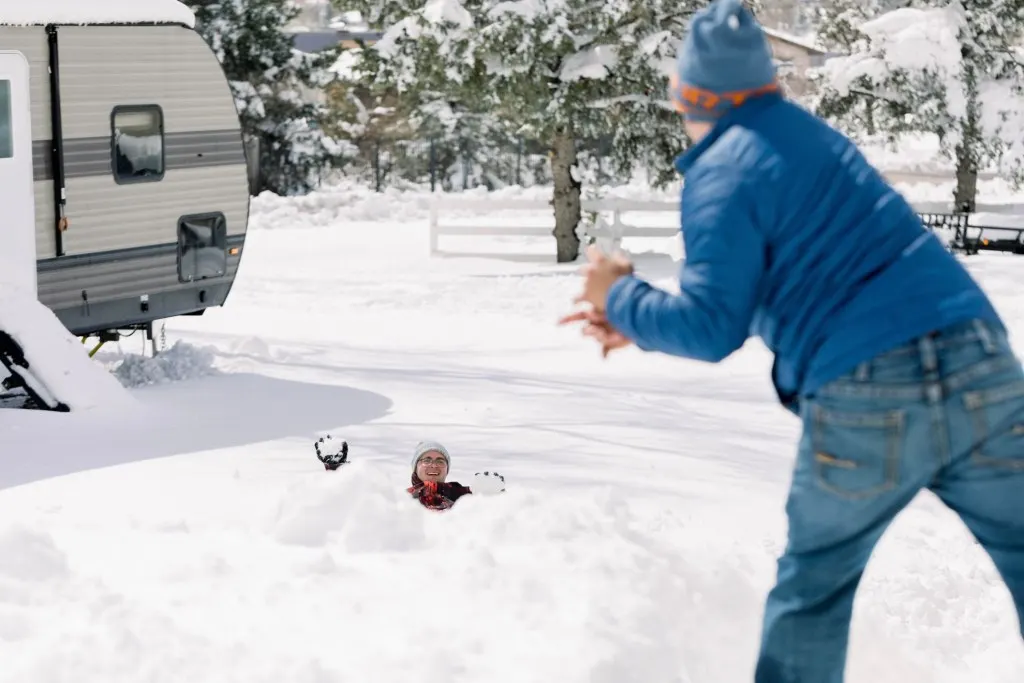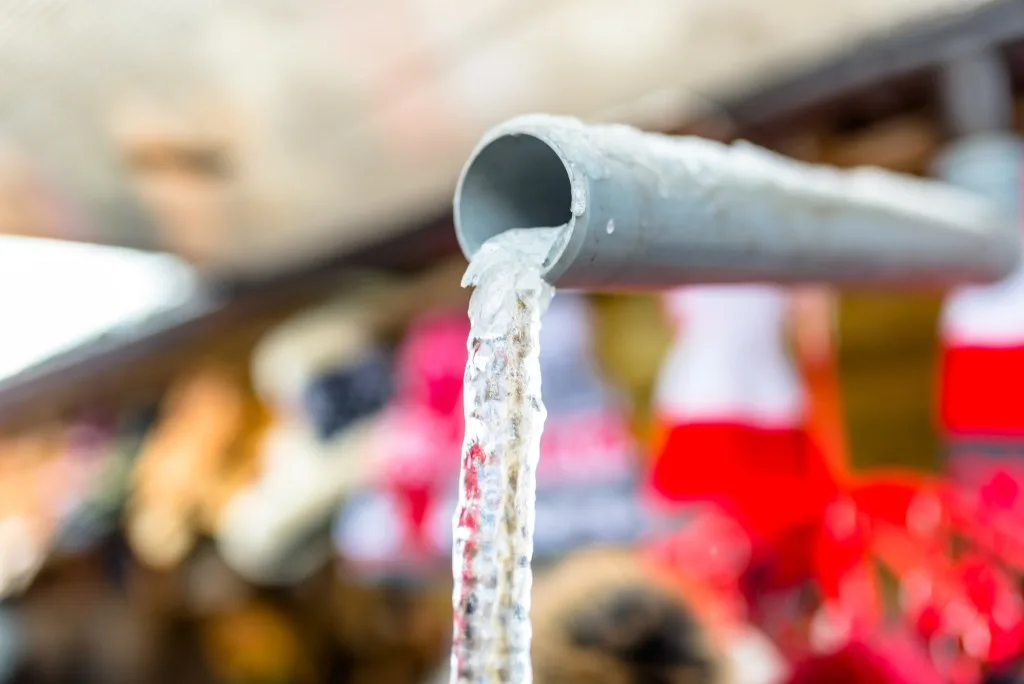Love it or hate it, winter comes around every year. If you’re lucky enough to live in an area that doesn’t have a hard freeze, the thought of having frozen RV pipes might seem foreign to you.
Those who keep their RV in a place with harsh winters likely know the damage that frozen pipes can do to an RV.
Today, we’ll learn how to unfreeze your RV pipes properly and how to prevent the issue in the first place.
Can You Unfreeze RV Pipes with Hot Water?
While it might seem like a good idea, in theory, to pour hot water down your pipes to unfreeze them, it likely won’t yield the results you’re hoping for.
Hot water will likely only thaw the top layer of ice before cooling and becoming ineffective.
Additionally, the two extreme temperatures could cause your pipes to crack, giving you a much bigger problem.
If you want to use hot water to aid in unfreezing your pipes, you could place towels into hot water and wrap them around your pipes.
What Is the Best Way to Unfreeze RV Pipes?
The best way to unfreeze your RV pipes is to do it slowly and carefully. Blasting hot direct heat on your pipes could result in damage. You also want to inspect your pipes before unfreezing them to ensure they haven’t cracked.
One of the best ways to unfreeze your RV pipes is by using indirect heat, such as a space heater. Place the space heater a safe distance from your frozen pipe.
This will slowly but efficiently melt the frozen water. This can work for both the interior and exterior of your RV. Never leave a space heater unattended, though, as it can quickly become a fire risk.
Wrapping heat tape on your pipes is another great way to unfreeze your frozen RV pipes. Not only will heat tape unfreeze your pipes, but it can also be a great prevention measure. Be sure to follow all safety measures when using electrical heating tape.
In a pinch, you can use a heat gun or hairdryer to unfreeze RV pipes. Be careful that you don’t get too close to your pipes with high heat.
This option will work but is a bit more effort as you’ll need to hold your heating source as it works.
Pro Tip: Should frozen pipes be your only concern? Discover Will RV Holding Tanks Freeze?

How to Prevent Your RV Pipes from Freezing in the First Place
Prevention is always better than dealing with the aftermath of being unprepared.
If dealing with frozen RV pipes isn’t a part of your travel bucket list, we’ve got a few tips to help you avoid the situation altogether.
Winterize Your RV
If your RV sits tucked away throughout the winter, consider winterizing it. This is an essential part of RV ownership unless you’re 100% certain that where you live will never see freezing temperatures.
Winterizing your RV gives you peace of mind that you won’t return to your RV with cracked pipes and water damage.
Not winterizing your RV can be a costly mistake. Winterizing your RV with RV antifreeze is very budget-friendly. If you’d prefer to avoid antifreeze, as an alternative, you can blow out your lines with an air compressor.
Pro Tip: Don’t know where to start when it comes to winterizing your RV? We uncovered How To Winterize Your RV.

Insulate the Bottom of Your RV
If your rig isn’t already a four-season RV, you may want to consider enclosing your underbelly. An enclosed underbelly adds a layer of protection from the cold air and wind.
Routing a heat duct to your underbelly allows your furnace to dump warm air into the underbelly, giving your pipes added protection.
In addition to pumping warm air into your underbelly, adding additional insulation can act as a blanket of sorts for your pipes.
As an added bonus, the interior of your RV will stay a bit warmer as well.
Electric Tank Heater
It isn’t just your pipes that can freeze and cause damage. Your holding tanks can freeze under harsh winter conditions.
Frozen tanks can lead to expensive repairs as they can crack and cause frustrating and unsanitary leaks. Having tank heaters can prevent your tank’s contents from freezing up, even with temperatures well below freezing.
How Long Does It Take for RV Pipes to Unfreeze?
Unfortunately, no one can predict exactly how long it will take for your RV’s pipes to unfreeze. Many factors come into play with frozen pipes.
A few hours below freezing might block your pipes with ice that can thaw out on its own, whereas constant freezing temperatures might require hours of work on your behalf to unfreeze them.
Should You Try the Hot Water Method When Your RV Pipes Freeze?
No, you shouldn’t attempt using hot water to unfreeze your RV pipes. It will be ineffective and could cause additional problems.
The two extreme temperatures in your RV’s pipes could cause your pipes to crack, creating more problems than when you started. There are much better methods to unfreeze your RV pipes that are not only more effective but pose less of a risk.
Whether you’re in an RV or a sticks and bricks home, frozen pipes are frustrating and can cause damage.
Unfortunately, frozen pipes happen more frequently in an RV as there’s less protection from the winter elements.
It’s always best to prepare for the frigid temperatures so you have preventative measures in place. Waking up to no water and possible damage is never a great way to start your day.
Have you dealt with frozen RV pipes? What have you found to be the best methods to unfreeze them?
Discover the Best Free Camping Across the USA
To be honest with you, we hate paying for camping. There are so many free campsites in America (with complete privacy).
You should give it a try!
As a matter of fact, these free campsites are yours. Every time you pay federal taxes, you’re contributing to these lands.
Become a FREE CAMPING INSIDER and join the 100,000 campers who love to score the best site!
We’ll send you the 50 Best Free Campsites in the USA (one per state). Access the list by submitting your email below: